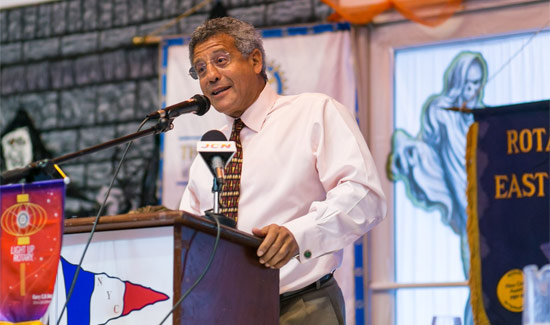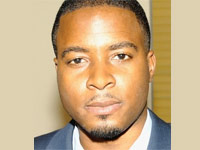 We now know almost all the election candidates of the three parties for representation in the House of Assembly. The Progressive Liberal Party (PLP) and Free National Movement (FNM) have selected all the men and women who will run under their respective banners. The Democratic National Alliance (DNA) has a few more to chose.
We now know almost all the election candidates of the three parties for representation in the House of Assembly. The Progressive Liberal Party (PLP) and Free National Movement (FNM) have selected all the men and women who will run under their respective banners. The Democratic National Alliance (DNA) has a few more to chose.
What is interesting is that each of the parties have a few candidates who have run for, or been supporters of, other parties. There are some interesting examples.
For the PLP, Dr. Andre Rollins was a candidate in 2010 at the Elizabeth by-election for the National Development Party, and Dr. Bernard Nottage (the current Bain and Grants Town MP) led the Coalition for Democratic Reform against the PLP in the 2002 general election.
For the FNM, Cassius Stuart was the leader of the Bahamas Democratic Movement. His colleagues on the FNM ticket Kenyatta Gibson, Edison Key and Prime Minister Hubert Ingraham are all former PLP MPs.
Dr. Madlene Sawyer, the DNA candidate for Southern Shores, was a former head of the PLP women’s branch. Her DNA colleague Wallace Rolle ran for the PLP in the 2007 general election. The DNA candidate for Bains Town and Grants Town, Rodney Moncur, was the leader of the obscure Worker’s Party before joining the DNA. And Branville McCartney, the party’s leader, was a former FNM MP and Cabinet minister.
These are just a few prominent examples of the flow of people in Bahamian politics. There are other candidates in the major parties who have been strong supporters of organizations opposed to the groups they are currently with.
What does it all mean? Well, some would say nothing, as politicians in countries around the world change party affiliation all the time. But, it could also be argued that the flow of people from party to party, running under any banner, exists here because there is little to no philosophical difference between the organizations.
In fact, it would be hard to use any traditional economic or political philosophy to describe any of the Bahamian political parties. Could you describe the PLP, DNA or FNM as left or right wing, conservative or liberal? No, you could not.
For example, in the 2012 Republican presidential race in the United States candidate Ron Paul is a libertarian. Paul has a very different view of the world from 2008 Democratic presidential candidate Dennis Kucinich, who is a social democrat. Libertarians are suspicious of the state and argue for small government and low rates of taxation. Social democrats think the state and taxation should be used to advance social justice.
It is important to know the political philosophy of parties and their leaders. When parties and leaders have strong beliefs, they bring forward policies that change the lives of people in distinct ways. A libertarian would essentially eliminate welfare. They do not think the wealth of individuals should be taken away by the state to be given to others with less wealth.
Social democrats always want more taxation to advance some Utopian social program to ‘help’ people. The business climate changes significantly when one of these politicians is elected, as opposed to the other.
Is Hubert Ingraham a conservative? Is Perry Christie a liberal? Is Branville McCartney a centrist? Who knows? Lately, our elections have been run on management style. Essentially, this is the essence of the debate: “I am a better man than you. Vote for me.”
A cynic could argue that it is difficult to pin down the political philosophy of our parties and politicians because they have none. Instead, they simply seek power to dispense the authority and wealth of the state. The voters then choose the person they think most able, and that’s that. The better manager manages things in a better ad hoc manner not under any recognizable system of ideals.
If this type of politics is good enough for the people, it will continue. For something else to evolve, the people would have to demand more of the process and the people involved.
Source: The Freeport News



